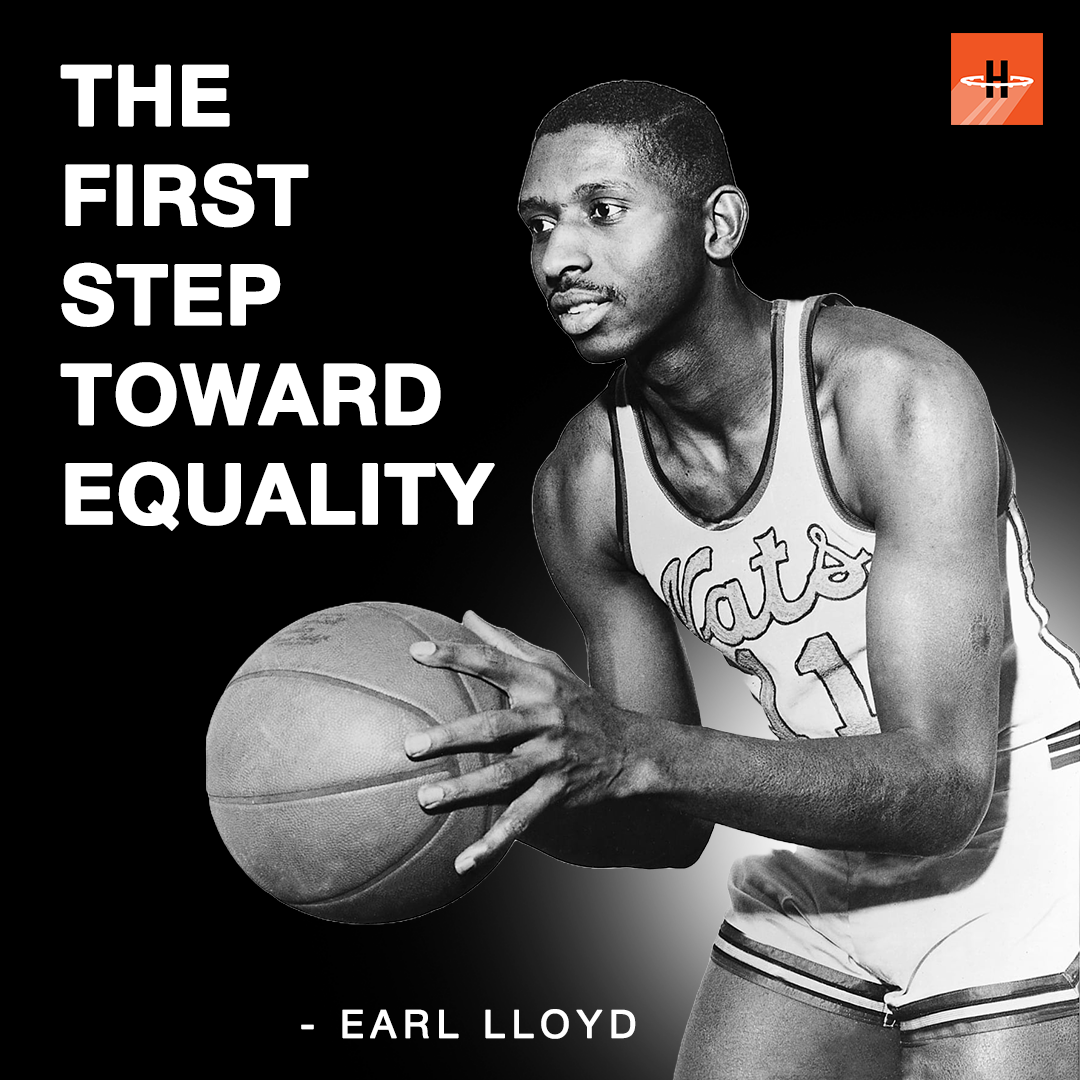Breaking Barriers: Earl Lloyd, the First African-American Player in the NBA

A Historic Debut: Changing the Course of Basketball
On October 31, 1950, a momentous event in sports history took place. Earl Lloyd stepped onto the court for the Washington Capitols, becoming the first African-American player to play in an NBA game. His debut was more than just a personal achievement; it was a monumental step in breaking down racial barriers in professional basketball.
The 1950 NBA season marked a significant turning point for the league, as three African-American players—Earl Lloyd, Chuck Cooper, and Nat “Sweetwater” Clifton—entered the professional basketball scene. However, Lloyd was the first to play in an official game, cementing his place in history as a trailblazer who paved the way for future generations of African-American athletes.
Overcoming Challenges: The Road to Integration
Born on April 3, 1928, in Alexandria, Virginia, Earl Lloyd grew up in a time of widespread racial segregation. Despite these challenges, he excelled in basketball at Parker-Grey High School before earning a scholarship to West Virginia State College, a historically Black institution. There, he became an All-American and led his team to championship success.
Lloyd’s entrance into the NBA was not met with open arms by everyone. He faced significant racism both on and off the court. In many cities where he played, segregation was deeply ingrained in society, forcing him and other African-American players to endure discrimination when it came to lodging, dining, and travel. Some fans hurled racial slurs, and he encountered hostility from certain players and coaches. However, Lloyd remained steadfast, letting his skills and perseverance speak for themselves.
A Stellar Career and Contributions to the Game
Despite the obstacles, Lloyd quickly proved himself as an invaluable player. Standing at 6 feet 5 inches and weighing 200 pounds, he was a formidable forward known for his defensive prowess and rebounding ability. He played for the Washington Capitols before being drafted into the U.S. Army during the Korean War. After his service, he returned to professional basketball, playing for the Syracuse Nationals (now the Philadelphia 76ers) and later for the Detroit Pistons.
During the 1954-55 season with the Nationals, Lloyd played a key role in leading the team to an NBA championship, making him the first African-American player to win a title. His contributions on the court were essential, but his influence extended beyond statistics and accolades. His presence alone helped to challenge the status quo, proving that African-American athletes belonged in the highest levels of competition.
A Lasting Impact: Coaching and Mentorship
Following his playing career, Lloyd transitioned into coaching and front-office roles, further cementing his influence on the game. In 1971, he became the first African-American assistant coach in the NBA, working with the Detroit Pistons. A few years later, he took the reins as head coach, continuing his mission of mentoring young athletes and promoting diversity in professional basketball.
Beyond his direct involvement in the NBA, Lloyd was deeply committed to inspiring the next generation. He frequently spoke to young athletes about perseverance, discipline, and the importance of education. His legacy lives on through the countless players who followed in his footsteps, proving that basketball is a game for everyone, regardless of race or background.
Honoring a Trailblazer: Earl Lloyd’s Enduring Legacy
Earl Lloyd’s groundbreaking career did not go unnoticed. In 2003, he was inducted into the Naismith Memorial Basketball Hall of Fame, a well-deserved honor recognizing his contributions to the sport. His impact continues to resonate within the NBA, where players of all backgrounds now have the opportunity to showcase their talent on a global stage.
His story serves as a testament to the power of resilience and courage. By breaking the color barrier in professional basketball, Lloyd helped shape a more inclusive and diverse league, one that today celebrates the achievements of players from all walks of life.
Conclusion
Earl Lloyd was more than just a great basketball player—he was a pioneer, a leader, and an inspiration. His courage in the face of adversity changed the NBA forever, ensuring that future generations of African-American athletes would have the chance to pursue their dreams.
As we celebrate his legacy, we recognize that his contributions extended far beyond basketball. He opened doors that were once firmly shut and proved that talent and character transcend race. Today’s NBA, with its rich diversity of players from around the world, stands as a testament to the foundation that Lloyd helped build.
The next time we watch a game, let us remember Earl Lloyd—the man who took the first step so that countless others could follow.
#EarlLloyd #NBAHistory #AfricanAmericanAthletes #BreakingBarriers #BasketballLegends #SportsDiversity #NBA #Trailblazers #EqualityInSports #BlackHistory

